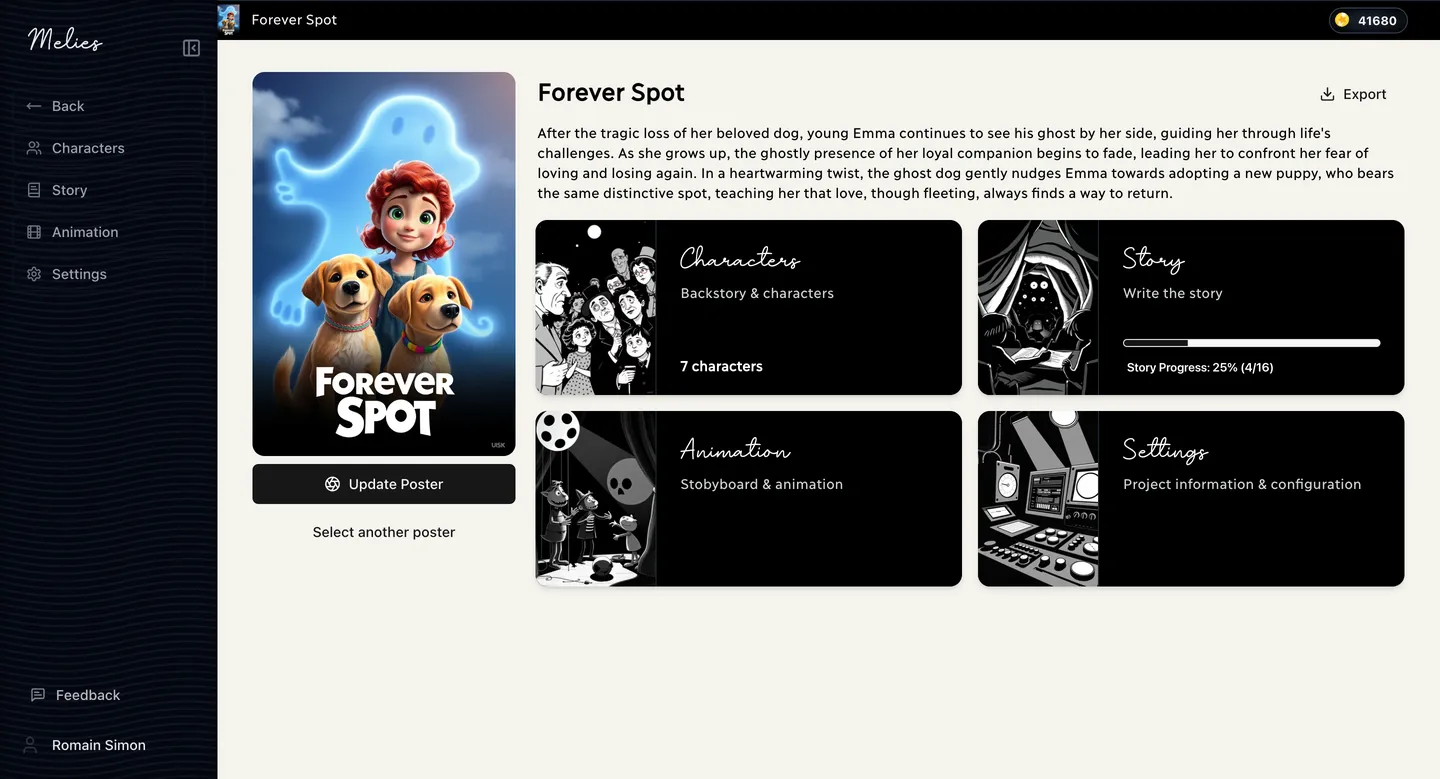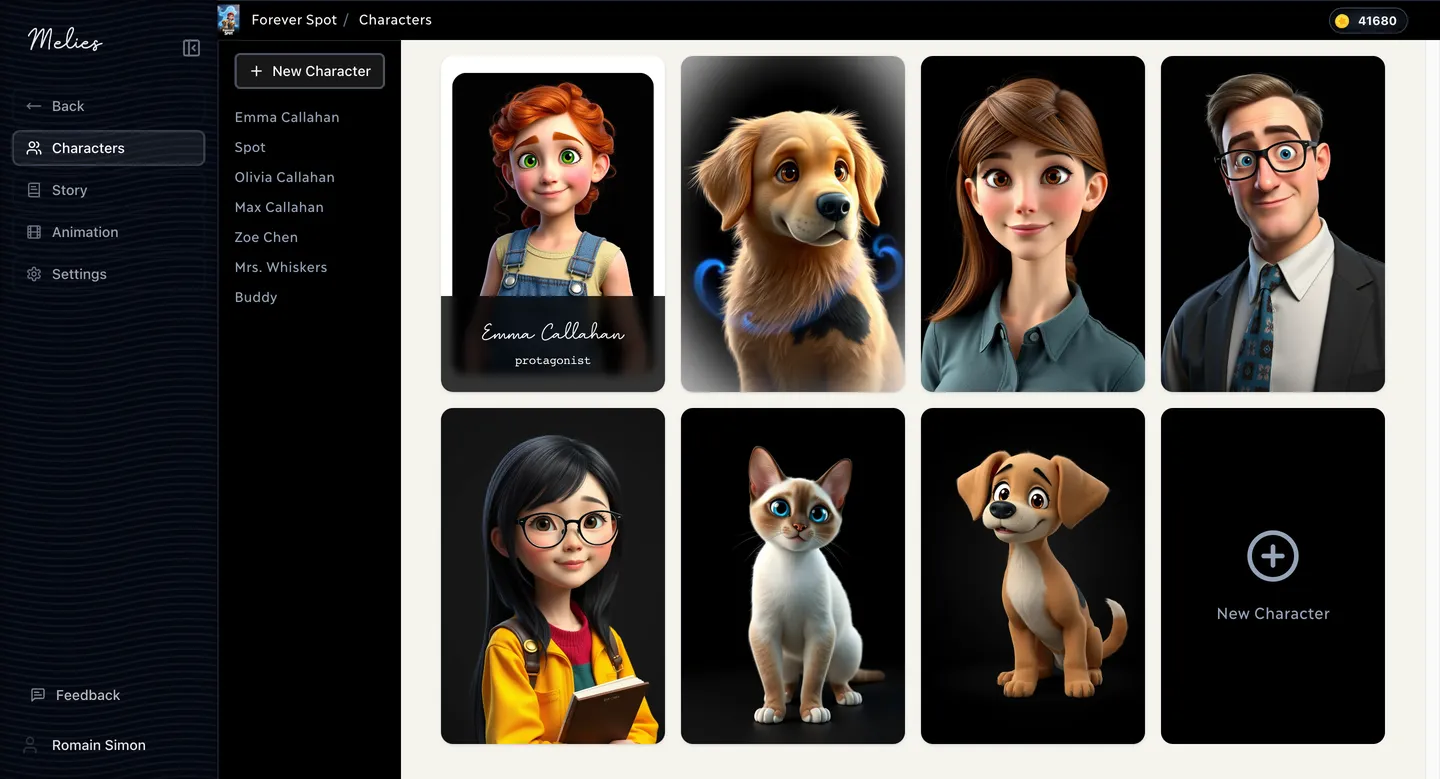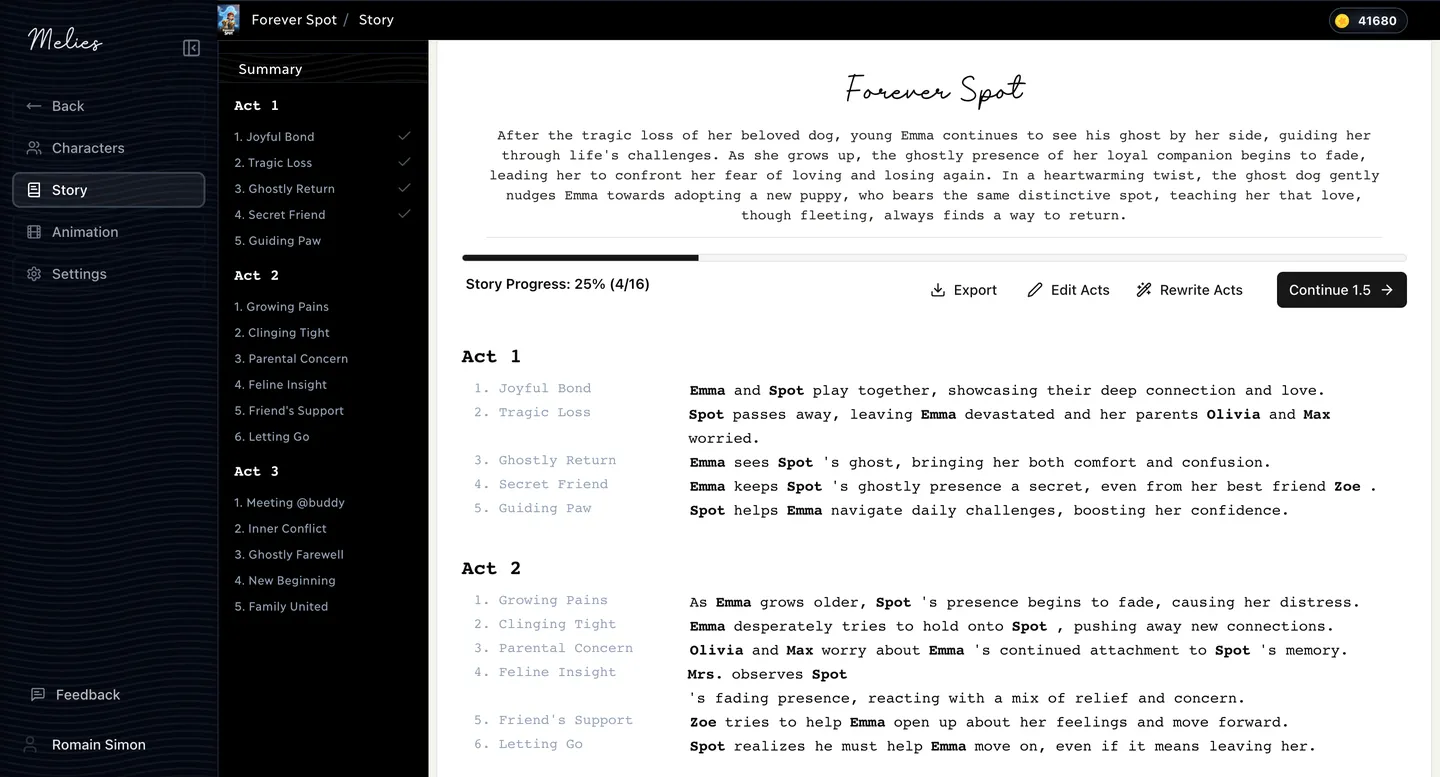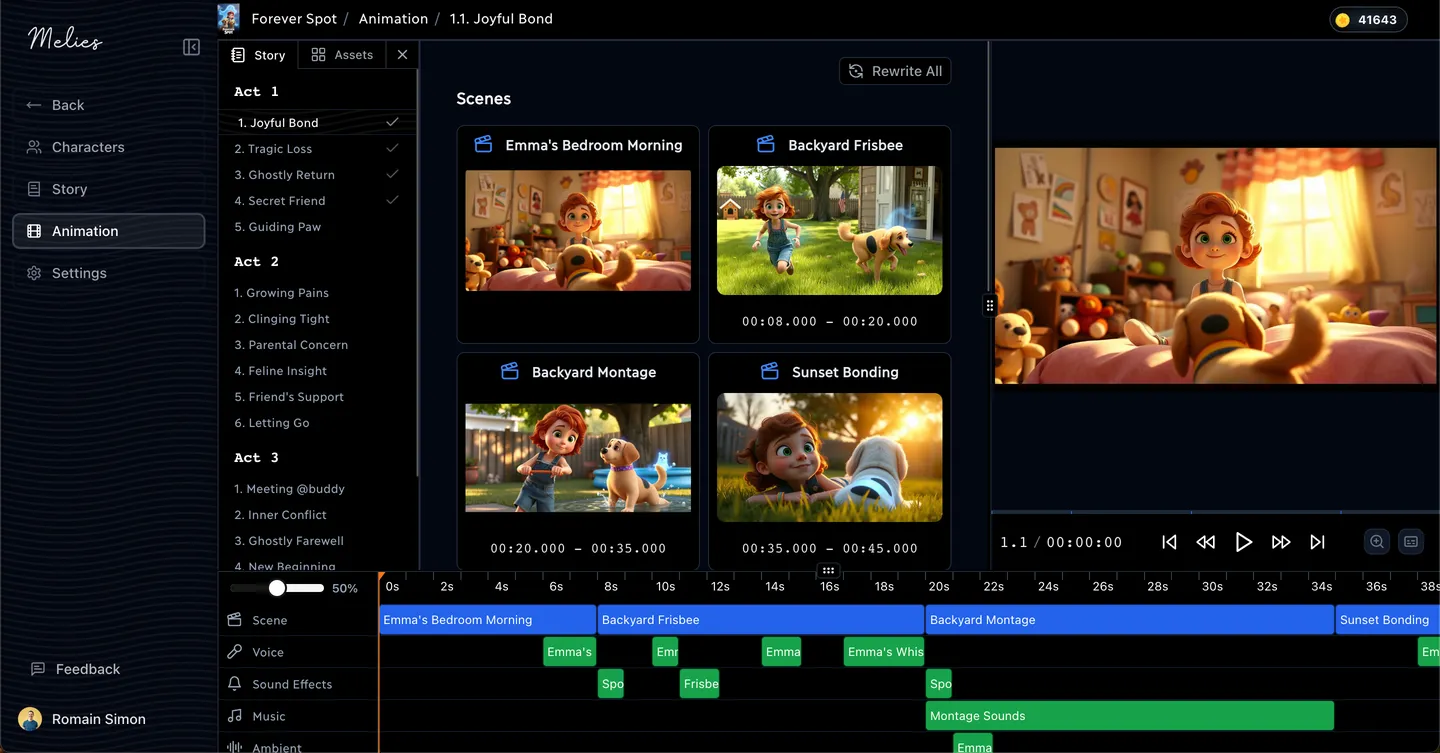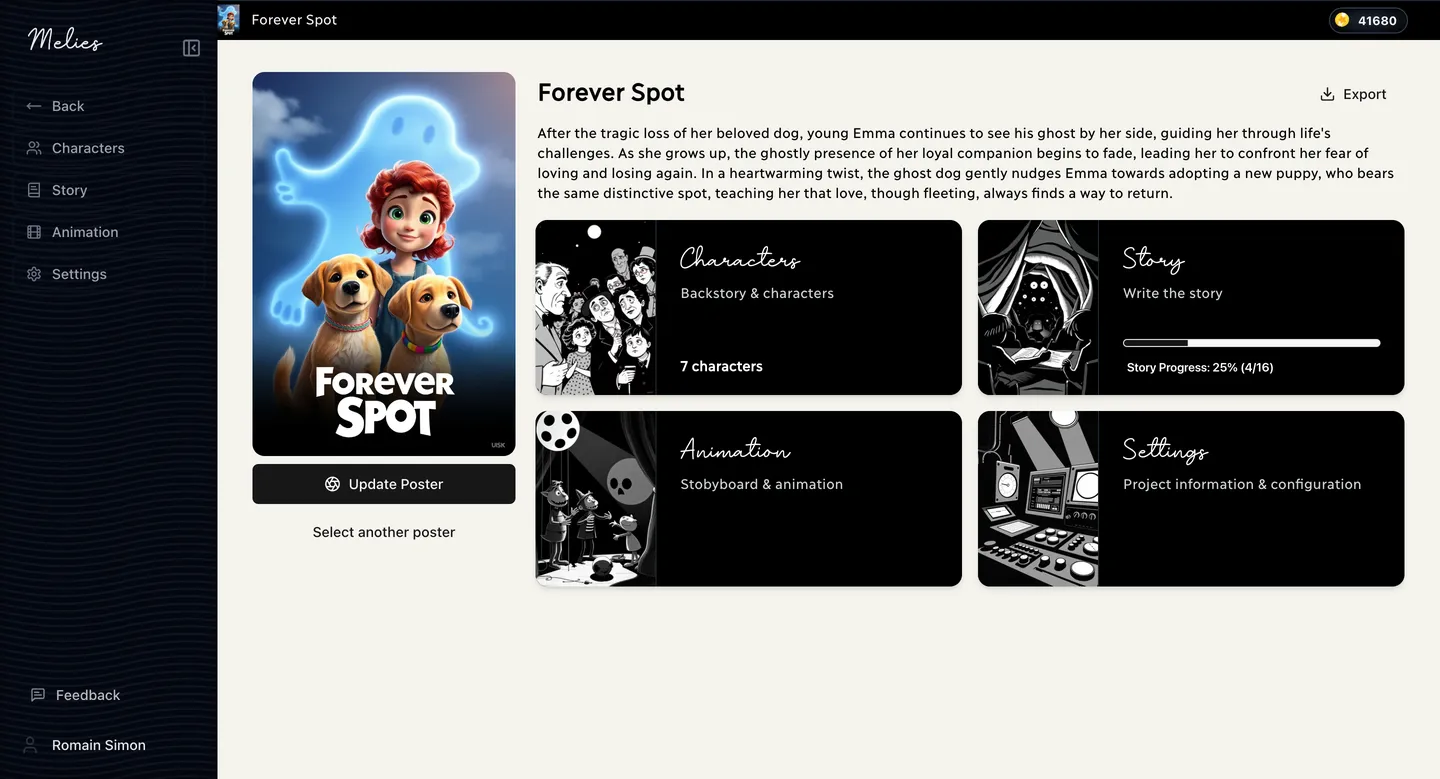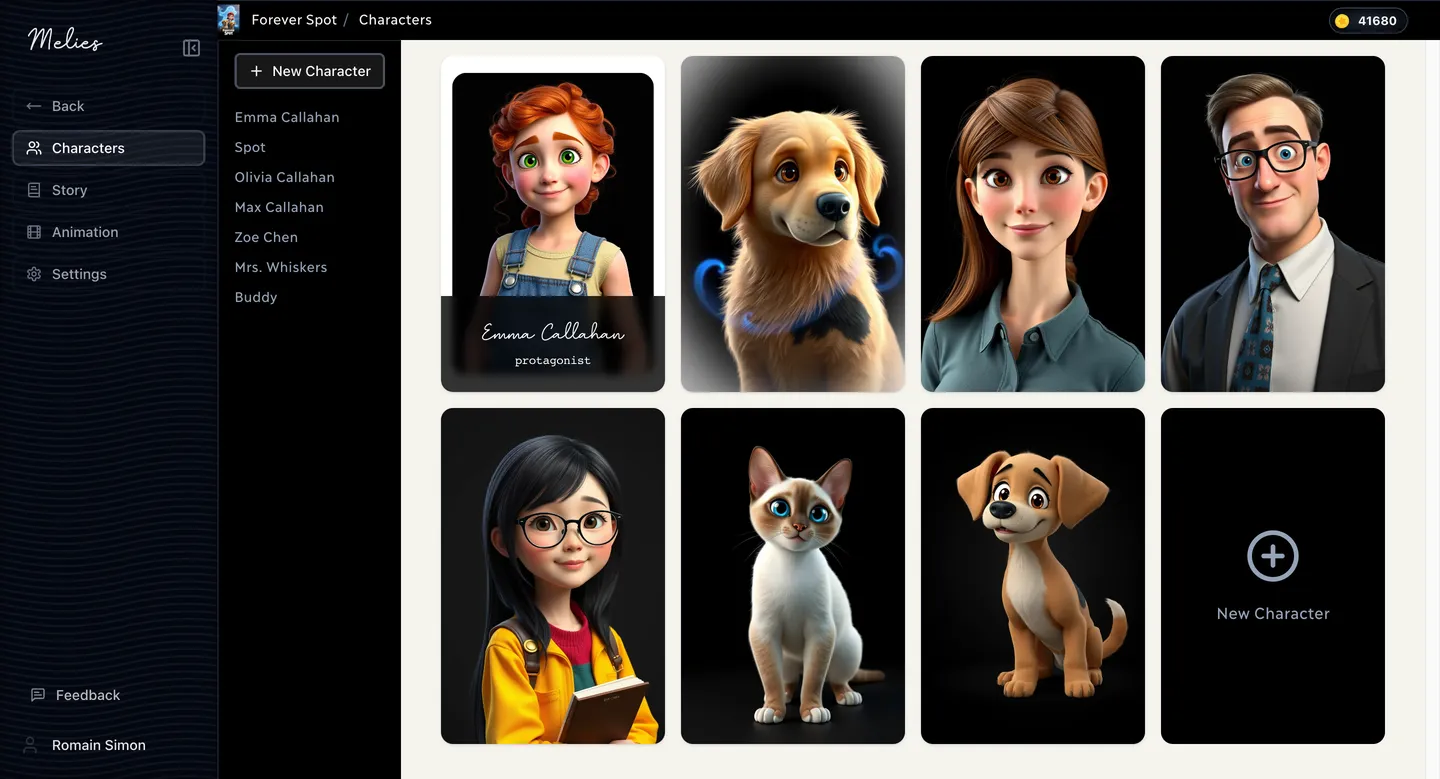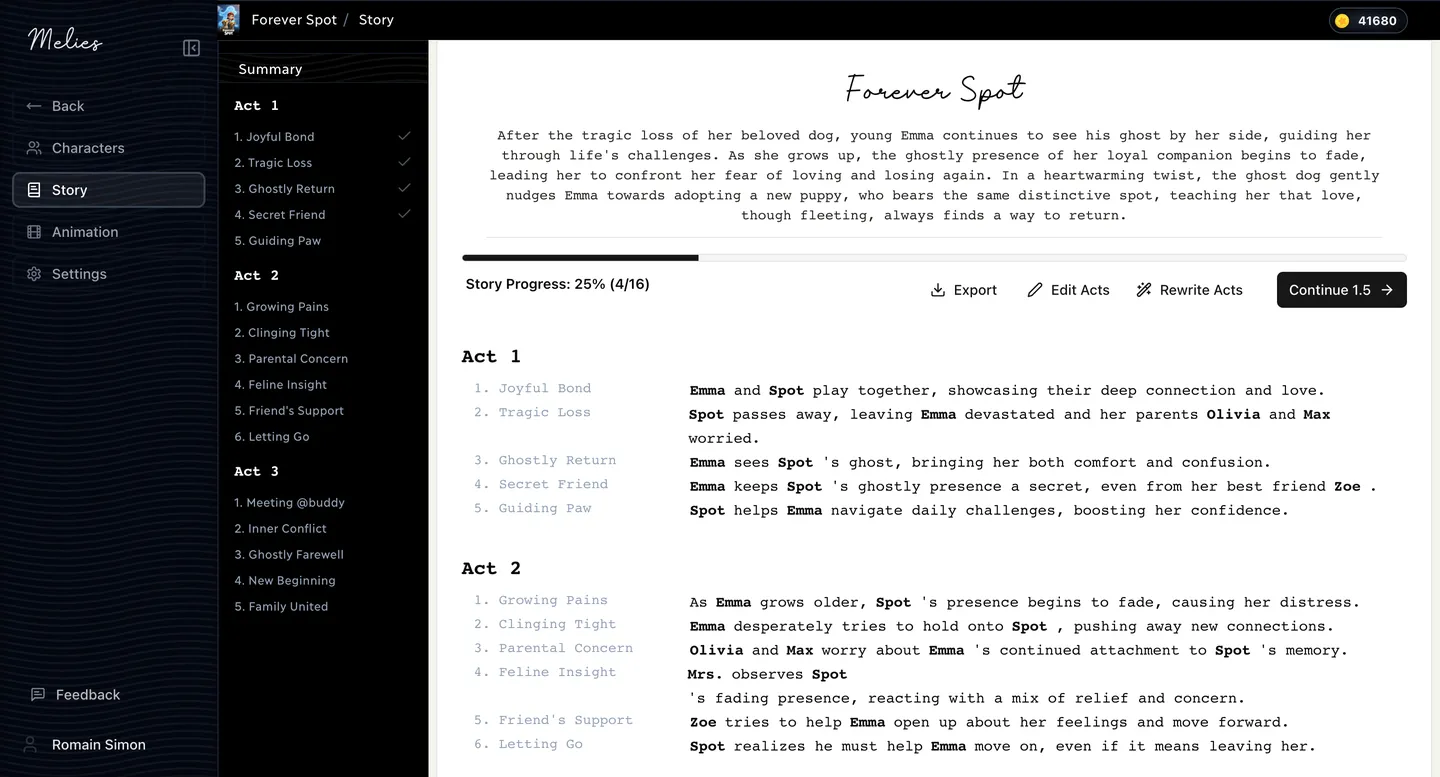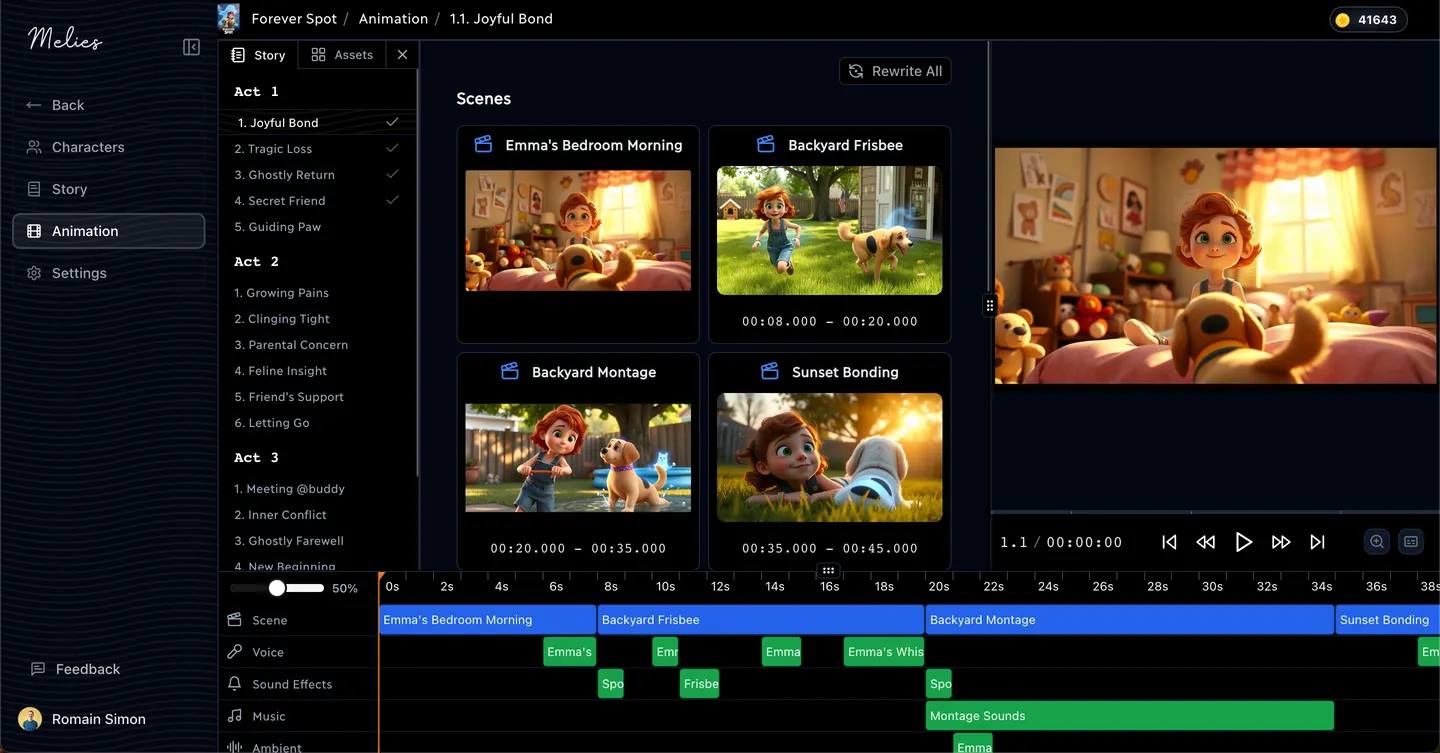Who Owns AI-Generated Films? Understanding Copyright & Ownership

The rapid advancement of Generative AI in filmmaking has transformed the industry, enabling AI assistance across the entire production pipeline, from
to visual effects and video generation. While tools like Melies offer unprecedented creative opportunities, they also raise complex questions about authorship, ownership and ethics.Who Owns an AI-Generated Film?
Traditional filmmaking has clear authorship - screenwriters, directors, and animators create original works. However, AI tools blur these lines by enabling automated content creation throughout production. As Oscar-winning director James Cameron notes, "
" in filmmaking.The U.S. Copyright Office has taken a firm stance, stating that "a work must be the result of original and creative authorship by a human author" to be copyrightable (
). This suggests that AI-generated content without significant human creative input may not qualify for copyright protection.At the 2024 Cannes Film Festival's Marché du Film, legal expert Charlotte Lund Thomsen provided valuable insights into the legal landscape of AI in filmmaking:
A key distinction emerges between traditional AI used for pattern recognition and decision-making versus generative AI that creates content. While both technologies enhance filmmaking, they present unique challenges around authorship and intellectual property rights that creators must carefully navigate.
Current Legal Framework
In the UK, copyright law is based on the principle that only works created by 'human beings' can be protected, with limited exceptions for computer-generated works. The
states that the author of a computer-generated work is the person "by whom the arrangements necessary for the creation of the work are undertaken".A recent
determined that AI-generated images lack copyright protection under European law, which reserves rights for "natural persons". To establish authorship claims with AI tools, creators must demonstrate substantial creative input through specific prompts, curation, and transformation of AI outputs into unique works.The
is examining these challenges through public consultations on digital replicas and AI content transparency. Their ongoing analysis will shape how copyright law adapts to AI-assisted creative works.As highlighted in the video from Cannes Next 2024, filmmakers need to carefully document their AI usage and creative process to support future copyright claims. This includes maintaining clear records of human input, obtaining necessary consents for any likeness used, and establishing explicit terms when working with AI vendors regarding data protection and output ownership.
Melies: A Human-AI Collaborative Approach
Melies positions AI as a creative assistant rather than an autonomous creator, with users having full control over AI prompts at every stage. While Melies suggests prompts, users can modify or completely rewrite them to match their creative vision:
- Ideation: Users can edit suggested prompts to generate film ideas that match their vision, then select and refine the results to create unique concepts
- Screenwriting: Writers can customize AI prompts for story outlines and script drafts, maintaining full creative control over the narrative direction
- Visual Development: Directors not only select visual styles but can craft detailed prompts to guide the AI in generating designs that match their artistic vision
- Production: Filmmakers have complete control over scene generation prompts, allowing them to precisely specify the look and feel of each shot
By maintaining direct control over AI prompts throughout production, Melies users can clearly demonstrate their original creative input and establish copyright ownership of their work.
Meet Melies
Melies is an AI filmmaking software that will help you transform your ideas into stunning movies.
